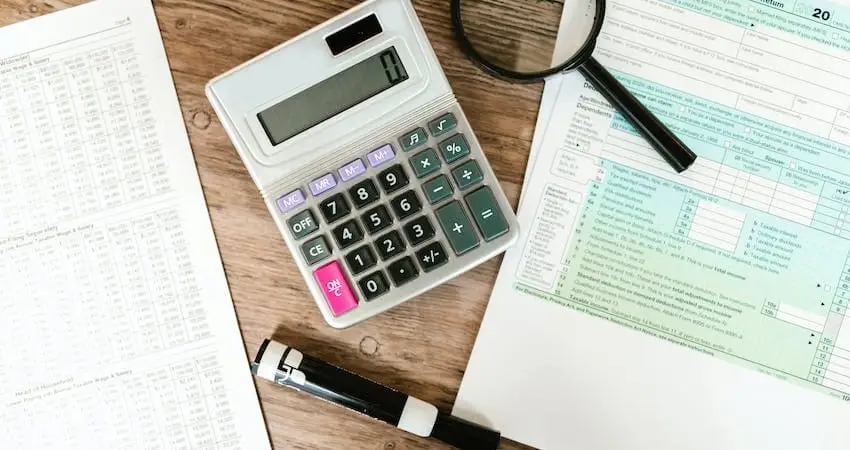IRS Tax Audit: Expert Advice on Navigating the Audit
Receiving an IRS tax audit notice can feel like opening a letter from a ghost – unexpected, unsettling, and shrouded in mystery. But here’s the truth: audits aren’t punishments. They’re routine checks, and with the right preparation, you can navigate them without losing sleep.
In this guide, you’ll learn exactly how to respond to an IRS tax audit confidently – whether it arrives by mail or involves an in-person interview. We’ll demystify the statute of limitations (spoiler: the IRS typically reviews returns filed within the last three years), outline your taxpayer rights, and share pro tips for minimizing stress and potential penalties. By the end, you’ll have a clear roadmap to turn anxiety into action.
Let’s start by answering the biggest question: Why was your return selected?
Why was I selected for an IRS tax audit? Breaking down the myths
Does an IRS tax audit notice automatically mean you’re in trouble? Not necessarily. The IRS uses a mix of data-driven methods and random chance to select returns – and most audits aren’t personal. Let’s debunk the myths and reveal what really lands taxpayers under review:
- Random selection: Like a lottery nobody wants to win, the IRS audits a small percentage of returns each year purely for statistical research.
- Discrepancies in income or deductions: The agency compares your return to “norms” for similar filers. Think: claiming $50,000 in charitable donations on a $60,000 salary.
- Linked to another audited taxpayer: Business partners, investors, or clients under review? Your return might get a second look.
- Amended returns: While corrections themselves don’t trigger audits, they undergo separate screening.
Contrary to popular belief, audits aren’t solely about catching errors. Many are routine checks to refine the IRS’s screening algorithms – a process rooted in the National Research Program.
Key Takeaway: Selection doesn’t imply guilt. Stay calm, gather your records, and let facts – not fear – guide your response.
The IRS tax audit process: Mail, interviews, and what to expect
An IRS tax audit isn’t a one-size-fits-all process. Depending on your situation, the agency may review your records by mail or schedule an in-person interview. Here’s how each method works – and how to prepare:
Mail audits: The paper trail
Most audits start with a letter requesting additional documentation (think receipts, invoices, or bank statements) to verify specific items on your return. You’ll typically have 30 days to respond. Pro tip: Always send copies, not originals, and use certified mail with tracking. Overwhelmed by paperwork? You can request an in-person audit instead.
In-person audits: Office vs. field
- Office audits: Held at an IRS facility, these focus on narrower issues. Bring only the documents listed in your notice.
- Field audits: Conducted at your home, business, or accountant’s office, these are broader in scope. Agents may review multiple years or complex transactions.
| Mail audit | In-person audit |
|---|---|
| 30-day response window | Scheduled appointment |
| Limited document requests | Broader record review |
| Ideal for simple issues | Used for complex cases |
The IRS outlines its methods in its Audit Techniques Guides, which reveal what examiners look for.
Key Move: Whether by mail or face-to-face, respond promptly and stick to the facts. Delays can lead to penalties – or worse, a default judgment.
How far back can the IRS audit taxes? Demystifying the statute of limitations
The IRS doesn’t have forever to audit you – but deadlines vary. Understanding the IRS tax audit statute of limitations is key to knowing your exposure. Here’s the breakdown:
The 3-year rule (most common)
By law, the IRS generally reviews returns filed within the last three years. This window starts on the later of:
- The tax return’s original due date (usually April 15).
- The date you actually filed (if you requested an extension).
Exceptions: When the IRS goes back 6 years
If your return has a “substantial error” (think underreporting income by 25% or more), the agency can audit up to six years back. Rare cases – like suspected fraud – have no time limit.
| Scenario | Audit timeline |
|---|---|
| Typical discrepancies | 3 years |
| Large underreported income | 6 years |
| Tax fraud or evasion | No limit |
Why extend the statute?
The IRS may ask you to agree to extend the audit period. While this sounds alarming, it often benefits you:
- Gives more time to gather evidence.
- Avoids rushed conclusions.
- Preserves your right to appeal.
As noted in IRS Publication 1035, extensions require your written consent. Never sign without consulting a tax professional.

Key takeaway: Most audits target the last two tax years. Keep records for at least three years – six if income gaps are possible.
Your rights during an IRS tax audit: What the IRS doesn’t always tell you
An IRS tax audit isn’t a power play – you have enforceable rights. The agency outlines these in Publication 1, but many taxpayers miss critical protections. Here’s what you’re entitled to:
- Professional treatment: IRS agents must communicate clearly and respectfully. Report misconduct immediately.
- Privacy and confidentiality: Audits can’t invade unrelated areas of your finances without justification.
- Clear explanations: Demand to know why the IRS is requesting information and how it will be used.
- Representation: Hire a tax pro (CPA, attorney) to handle correspondence or attend meetings.
- Appeal disagreements: Challenge findings through IRS mediation, independent appeals, or Tax Court.
Pro tip: If an agent pressures you to sign documents or waive rights, politely decline and consult a professional. As the IRS states, “You have the right to retain an authorized representative of your choice to represent you.”
Key move: Print a copy of Publication 1. It’s your shield against overreach—and your roadmap to a fair audit.
Preparing for an Audit: Documents, deadlines, and pro tips
An IRS tax audit hinges on one non-negotiable: documentation. Lose the paperwork, and you risk owing more – or losing the argument altogether. Here’s how to build an audit-ready paper trail:
The 3-year rule (and when to break it)
Keep tax records for at least three years from your filing date. But exceptions apply:
- 6 years: If you underreported income by 25% or more.
- Indefinitely: For suspected fraud or unfiled returns.
Your IRS audit checklist
The agency will specify needs, but start with these essentials:
- Income proofs: W-2s, 1099s, bank statements, rental income records.
- Expense receipts: Business costs, medical bills, charitable donations.
- Prior returns: Copies of the audited year and adjacent filings.
- Legal docs: Divorce decrees, loan agreements, or inheritance paperwork.
Deadlines and extensions
- Mail audits: Respond within 30 days. Need time? Fax a 30-day extension request using the number on your IRS letter.
- In-person audits: Negotiate deadlines directly with your auditor.
| Critical step | How to do It |
|---|---|
| Confirm the IRS received your response | Use USPS tracking or check your IRS online account. |
| Store records securely | Use cloud backups and physical copies. |
Pro Tip: The IRS accepts electronic records—scan receipts to a folder labeled “Audit [Tax Year].”
Key Takeaway: Missing a document? Don’t panic. A tax pro can help reconstruct records or negotiate alternatives.
Agreeing vs. Disagreeing: Next steps after an IRS audit
An IRS tax audit ends in one of three ways: no changes, agreed changes, or unresolved disputes. Your response shapes what happens next – and how much you pay.
If you agree with the findings
- Sign the report: This accepts the IRS’s adjustments.
- Pay what you owe: Options include lump-sum payments, installment agreements, or an Offer in Compromise.
- Update future returns: Correct errors to avoid repeat audits.
If you disagree with the findings
- Request a manager conference: Discuss issues with the auditor’s supervisor within 30 days.
- File an appeal: Submit Form 12203 to the IRS Independent Office of Appeals.
- Consider mediation: The IRS offers Alternative Dispute Resolution for faster settlements.
- Go to Tax Court: File a petition within 90 days of the audit’s conclusion.
| Agree | Disagree |
|---|---|
| Resolves quickly | Extends timeline (months to years) |
| Avoids legal fees | May require professional help |
| Limits penalties | Preserves refund rights |
Key Move: Disputing results? Never go it alone. Partner with a tax expert to negotiate or litigate strategically.
Mastering your IRS tax audit: Key takeaways and next steps
An IRS tax audit is a process, not a punishment. By understanding why returns are selected, preparing documentation early, and knowing your rights, you can navigate audits with confidence. Remember: most reviews focus on the last three years, but substantial errors extend the timeline. Whether you agree with findings or dispute them, options exist to protect your finances – from payment plans to formal appeals.
Ready to shift from anxiety to action? Partner with H&S Accounting & Tax Services. Our experts decode IRS complexity, ensuring your audit is resolved fairly and efficiently. Secure your consultation now – because peace of mind is the best deduction.







